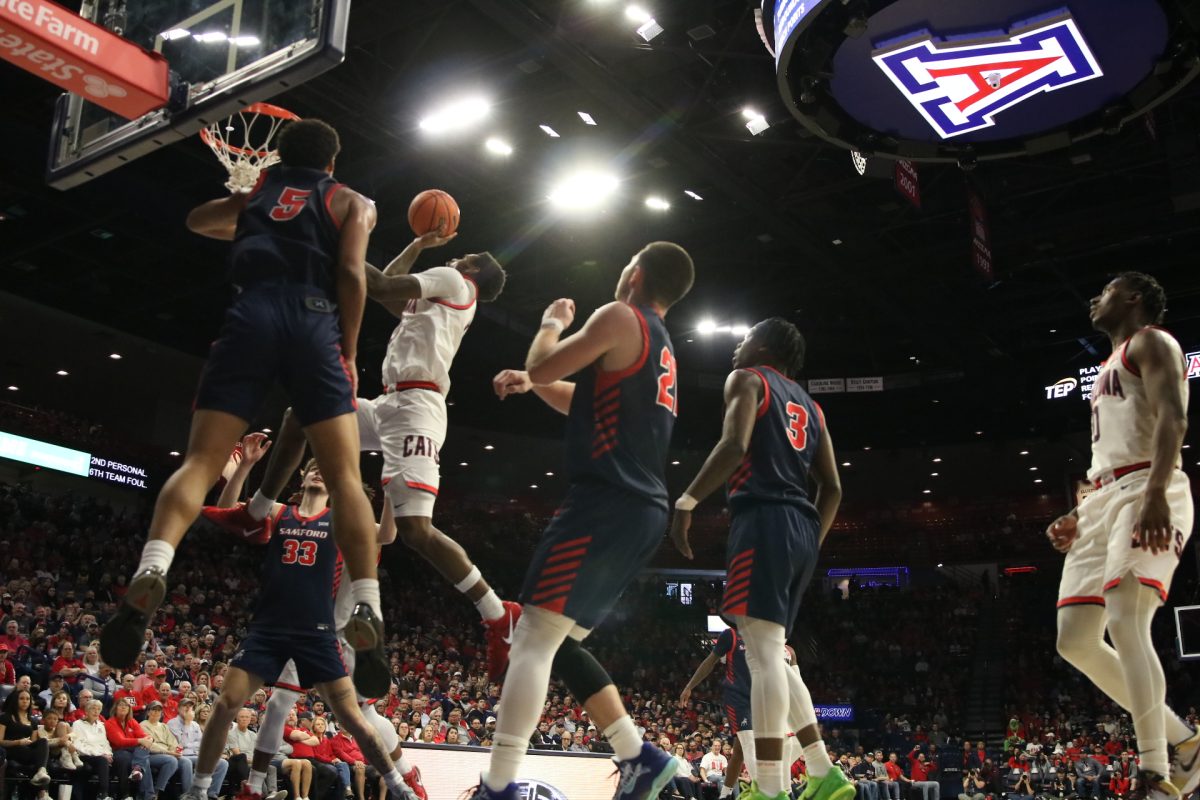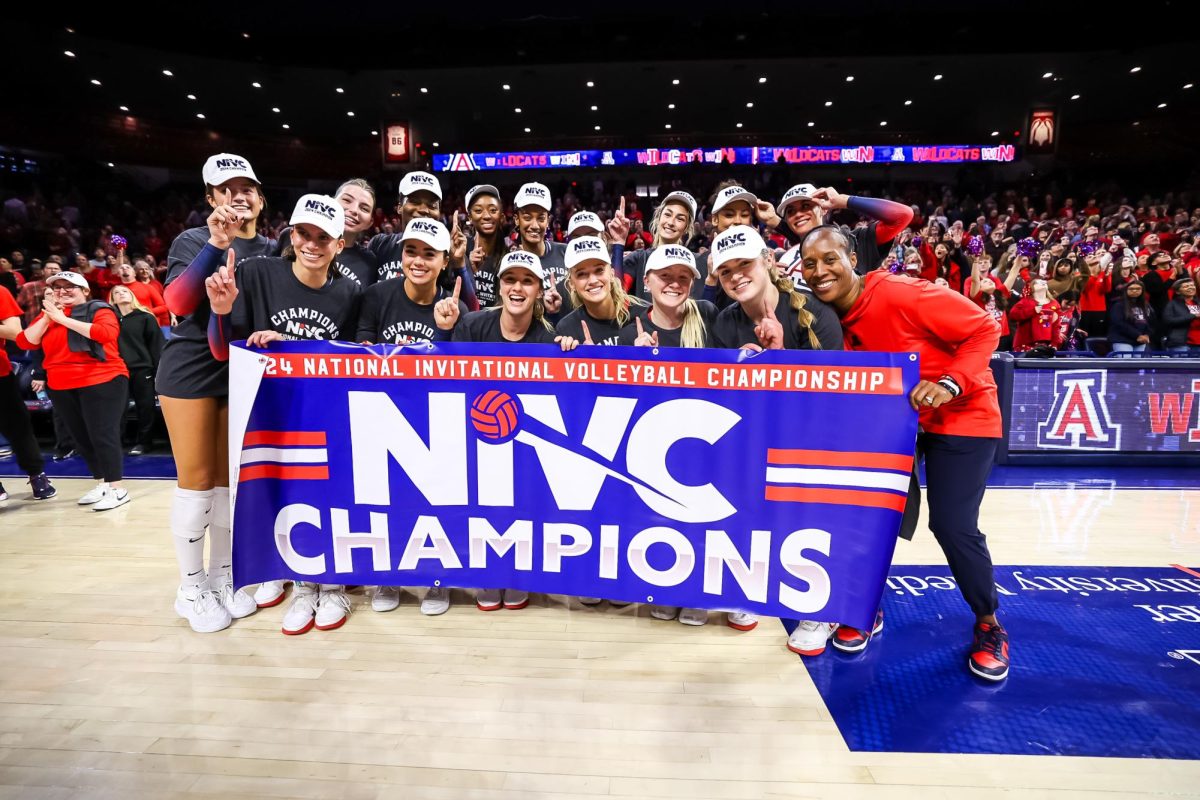Hotly debated for the last four years, sports betting has been legalized in Arizona on Thursday, April 15, when Gov. Doug Ducey signed House Bill 2772. The same bill legalized Daily Fantasy Sports and Keno at select locations. It allows for tribal casinos to be built on native-owned land in addition to the 24 casinos currently operated by 16 different tribes.
Sports betting was federally legalized in 2018 after the Supreme Court struck down the ban in place since 1992. However, federal legalization did not mean Arizonans could start placing sports bets. Despite federal legalization, each state government has had to legalize sports gambling and that process has been quicker in some places than it has in others.
Arizona joined 25 states and Washington D.C. in legalizing some form of sports gambling. Every other state but one has some form of legislation in the works. The exception is Utah due to the anti-gambling language in its state constitution.
The legal language of HB 2772 is not exactly a page-turner. Beyond legalization, there are a lot of logistics to be addressed before sports betting becomes a reality. Who will get licenses? Where will the sportsbooks be located? How much revenue will the State generate from sports betting? Where will that revenue go? How old do you have to be to bet? Most importantly, how soon will Arizonans be placing bets?
What is sports betting?
In the simplest terms possible, sports betting involves placing a wager, usually money, on the outcome of a sporting event.
What forms of gambling already exist in Arizona?
Arizona already has casinos with every slot machine and table game one would find in a Las Vegas casino. Arizona has a state lottery system and in-person wagering on horses at racetracks. Many of the tribal casinos offer bingo.
How old will you have to be?
To gamble on sports in the state of Arizona, you will need to be at least 21 years old.
Where will you be able to bet?
The state awarded 10 gaming licenses to professional sports teams in Arizona and another 10 licenses to tribal nations to open sportsbooks at their casinos. It has not yet been determined which tribes will get those licenses, something to be debated in the future.
Additional licenses are another decision for the future. HB 2772 allows for mobile sports betting, eliminating the need for bettors to go to an actual sportsbook to place a bet. Instead, bettors can place bets on their mobile phones or computers. Each team or tribe awarded a license will likely partner with a national mobile sports betting company like FanDuel, DraftKings or the Barstool Sportsbook. Not only will they build brand new in-person sportsbooks at their arenas, casinos or stadiums, but they will also offer that mobile option. The Phoenix Suns have already partnered with FanDuel to build a 6,000+ square foot in-person sportsbook at Talking Stick Arena.
How much will the state make off sports betting?
The state government will collect 8% of all revenue sportsbooks make from sports betting. The Joint Legislative Budget Committee estimates that the state could generate upwards of $34 million per year based on amounts other states that have legalized sports gambling have collected, including Iowa, Indiana, Pennsylvania and West Virginia.
This is just an estimate, and it will take a few years of data before the exact revenue is known. The upward trajectory of the Phoenix sports scene could boost this number since both the Suns and Cardinals are exciting young teams capable of drawing interest from potential bettors.
Where will the revenue go?
What the state does with the money is up for discussion; some people in power have called for it to go to the state’s general fund while others have seen it as a basis for tax cuts. If the revenue goes to the state general fund, the revenue could be distributed to healthcare, education, infrastructure, childcare and a plethora of other needs.
How soon will Arizonans be placing bets?
It will take some time for the actual sportsbooks to be built at the casinos, arenas and stadiums and for implementation of the necessary software for mobile betting. Sportsbooks will rush to be open by football season in an effort to cash in on eager football gamblers; conservatively, sports gambling should be full steam ahead by Thanksgiving.
Were there objections to the legalization of sports betting?
The bill passed both the Arizona House and Senate with ease, making it one of the few things Democrats and Republicans have agreed on. Some of the opponents objected to the way the bill came together. They further objected to the bill’s vague language as to how much a license would cost, specifically how much the pro teams would pay for them. Bob Christie of AP News delved into some of these issues in an article he wrote. The issue of gambling addiction must be addressed. The Arizona Department of Gaming already offers anonymous gambling help, so it will be interesting to see if they start to offer more.
Will Arizona fans be able to bet on the Arizona Wildcats?
Yes, Arizona fans will be able to bet on the Arizona Wildcats; however, unlike pro sports, the state will not allow propositional bets on college games. This means bettors will not be able to place bets on individual players’ performances, including if they will score a touchdown or not or get over or under a set amount of points. This avoids a battle with the NCAA.
In the often-changing landscape that is sports, this was the obvious next step for Arizona. Despite the potential problems that gambling brings and the “get off my lawn” attitude of those who think sports betting would ruin the “purity” of sports, the money to be made from gambling is just too great to ignore. Every party involved stands to make money except, of course, the actual bettors. As the old saying goes, “the house always wins,” and we bettors are not the house.
Follow Seth Litwin on Twitter









